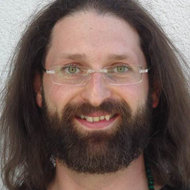Research Engineer for Statistical 3D Model of Quadrupeds (f/m/d)
Max Planck Institute for Intelligent Systems in Tübingen is looking for a research engineer.
The Optics and Sensing Laboratory at the Max Planck Institute for Intelligent Systems in Tübingen has an open position to join the ongoing research efforts in the development of statistical 3D models of horses. We are creating the world’s most realistic human and animal avatars for use in research, film, virtual reality, biology, and medicine. Using unique 3D & 4D capture facilities, machine learning, computer vision, and advanced graphics, we are modeling every nuance of how humans and animals look and move. We develop algorithms to estimate human shape and motion in images, videos, RGB-D sequences, etc. Our approaches define the current state of the art, and we are constantly pushing these methods and systems to achieve better accuracy and more availability. Our future work aims at generating automatic 3D poses, shapes and textures of animals from images acquired in the wild.
Department website: https://is.mpg.de/en/optics-sensing-laboratory
The Project
Horses are one of the most beloved animals. They are beautiful in shape and motion; they have been used for carrying people's goods, for helping in farming, for racing, and also for therapy. We are interested in capturing horse motion from motion capture data to build marker-less motion capture systems for horses.
We are collaborating with the Swedish University of Agricultural Sciences and KTH Royal Institute of Technology in developing a system for the markerless motion capture of horses. Our approach is based on creating a highly realistic 3D articulated model of horses from data. To achieve this goal, we need to capture partial 3D scans of real animals and register them to a predefined horse template. Doing this enables us to model the shape of real horses and the shape variability across a range of individuals with different characteristics. In this research context, we are looking for a talented research engineer to pursue the project.
Roles & Responsibilities
- Data cleansing and automated assessment of scanning quality.
- Implementation of a robust method for registering templates to 3D-cleaned scans.
- Enhancement of the process for re-training and establishing a continuous learning pipeline.
- Automating assessment procedures to determine the anatomical accuracy of a trained model.
Education & Experience
- Master's Degree with strong academic performance in relevant courses
- Experience in Computational Geometry, Computer Vision, and Deep Learning
- Accepted publications in one of these fields are a big advantage
- Good programming skills in Python or C++; PyTorch experience is a plus
- Experience in one or more of the following: Point-cloud libraries, OpenCV, 3D rendering pipelines, and deep-learning frameworks
- Good oral and written communication skills in English.
Our offer
In this working environment, you will be exposed to cutting-edge technologies related to computer vision and multi-sensor systems. The MPI for Intelligent Systems is one of the world's leading research institutions for machine learning, computer vision, and robotics, studying the concepts of intelligence and autonomous behavior in artificial systems at different length scales. The position is ideally suited for candidates looking to extend their scientific and cultural horizons, particularly in the area of 3D motion capture. You will be a part of a dynamic team of international scientists, engineers, and administrative staff.
This is a position limited to 6 months, and the expected starting date is December 1st, 2024.
Application
Please upload your application to our application system (https://jobs.is.mpg.de/z2s93).
Required documents:
- Curriculum Vitae
- References
- GitHub account showing us your programming skills
- One-page response to the following:
- Briefly describe the ICP Algorithm and Laplacian smoothing
- Tell us about your experience with point clouds and 3D rendering libraries
Keiko Kitagawa at keiko.kitagawa@tuebingen.mpg.de and Dr. Senya Polikovsky at senya.polikovsky@tue.mpg.de.
The Max Planck Society is committed to increasing the number of individuals with disabilities in its workforce and, therefore, encourages applications from such qualified individuals. The Max Planck Society strives for gender equality and diversity. Furthermore, the Max Planck Society explicitly encourages women to apply.
The position is open until filled or no longer needed.

